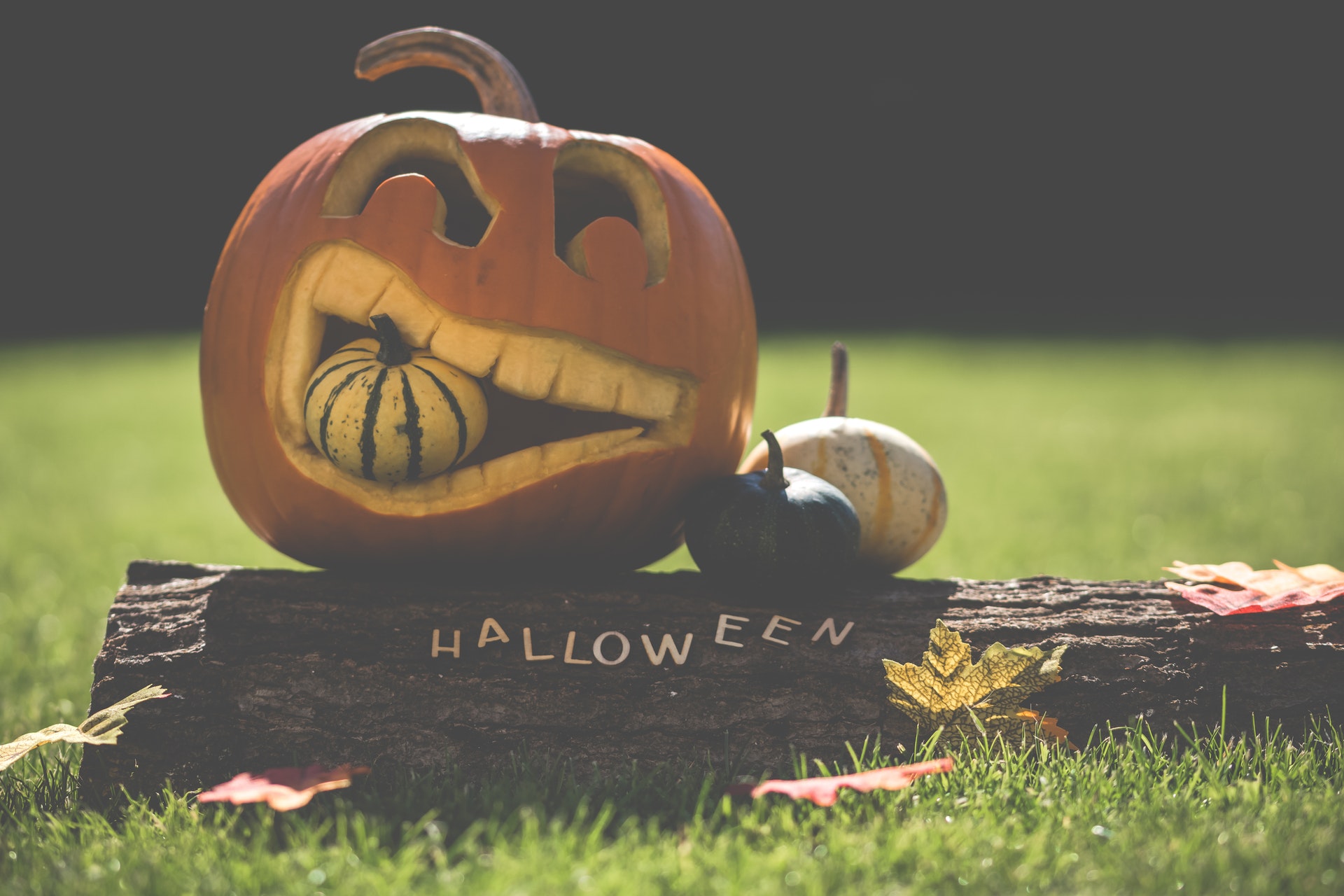Halloween is almost here – and children (and adults!) across the country are planning their spooky costumes and tricky treats, all ready for the night of the 31st October!
Over recent years the celebration of Halloween has gathered apace, and although it may seem that this much loved event is a more recent phenomenon, its history is actually much older than you might expect.
Halloween can trace its origins to a pagan (non-Christian) celebration called “Samhain.”, the celebration of which included lighting fires and wearing scary costumes in order to ward off ghosts. This Celtic festival marked the beginning of the new year on 1st November. It was a way in which to mark the end of the harvest and the summer, and the onset of the dark, cold winter. The Celts believed that the boundary between the worlds of the living and the dead became blurred on the night before the new year. So they celebrated Samhain on the night of October 31st, when it was believed that the ghosts of the dead returned to earth.
Fast forward a few hundred years and the celebration is just as big – with lots more sugar!
So to celebrate the spooktacular and mark the macabre, here are our top 10 super spooky words and phrases and what they mean!
- Nyctophobia If you’re frightened of the dark you could be suffering from nyctophobia, the abnormal fear of night or darkness. Nyctophobia is an excellent way to describe someone who goes to bed with the lights on because they can’t stand the dark! It comes from the Greek work nux for “night” and phobia meaning “an aversion.”
- Perdition This means loss of the soul or damnation, particularly in the Christian tradition. If you’re sent to perdition then you’ll be heading towards final spiritual ruin or eternal damnation. Think of it as a much scarier word for hell.
- Lycanthrope This is a great way to describe someone who is a werewolf! Again originating from a Greek word lykanthropos which means “wolf-man,” lycanthrope is defined as “a werewolf or alien spirit in the physical form of a bloodthirsty wolf.” There is even a psychiatric condition called lycanthropy, which happens when someone actually believes they are a wolf.
- Berserk From deranged killers to murderous zombies, when someone goes berserk they suddenly turn crazy and they seem to be overcome by a manic frenzy. It comes from Old Norse, a language that evolved from ancient Viking tongues, with bjorn meaning “bear” and serkr meaning “shirt” or “armor.” It’s a great way to describe when someone’s usual human calmness has been taken over by some frantic animal reaction.
- Sepulchral This relates to burial. The Latin word sepulcralis which means “to bury in the earth,” and lots of things can be described as being sepulchral, meaning that they’re chilling or macabre: a stony silence, a cold draft of wind that makes your hair stand on end, or a dreary, misty graveyard at night.
- Wraith This is the ghost of someone just before or after death. “Wraith” is a Scottish word for “ghost”, “apparition”, or spirit” and it describes a creature that had a history in black magic and sorcery during its lifetime. You don’t ever want to see one. Not ever.
- Heebie jeebies This term comes from the USA and is widely attributed to William Morgan “Billy” de Beck. The first time it was seen in print was in a 1923 cartoon of his, in an edition of the New York American on the 26th October : “You dumb ox – why don’t you get that stupid look offa your pan – you gimme the heeby jeebys!” It means you have a strong feeling of anxiety or being nervous about something.
- Hobgoblin The word comes from “hobgoblin” comes from “hob” (“elf”) and “goblin” (“mischievous and ugly fairy”). Think of Puck in Shakespeare’s A Midsummer Night’s Dream or a modern version in Dobby from the Harry Potter adventures.
- Skullduggery Traced back to 1856, this word is presumed to be an alteration of Scottish sculdudrie “adultery” (1713), sculduddery “bawdry, obscenity”(1821). If you’re involved in Skullduggery, then you’re up to some underhanded or unscrupulous behavior.
- Ghastly This sees its origins in the Middle English word “gastly”, from “gasten” to terrify. It’s a great way to describe something that’s exceedingly unpleasant or hideous.

